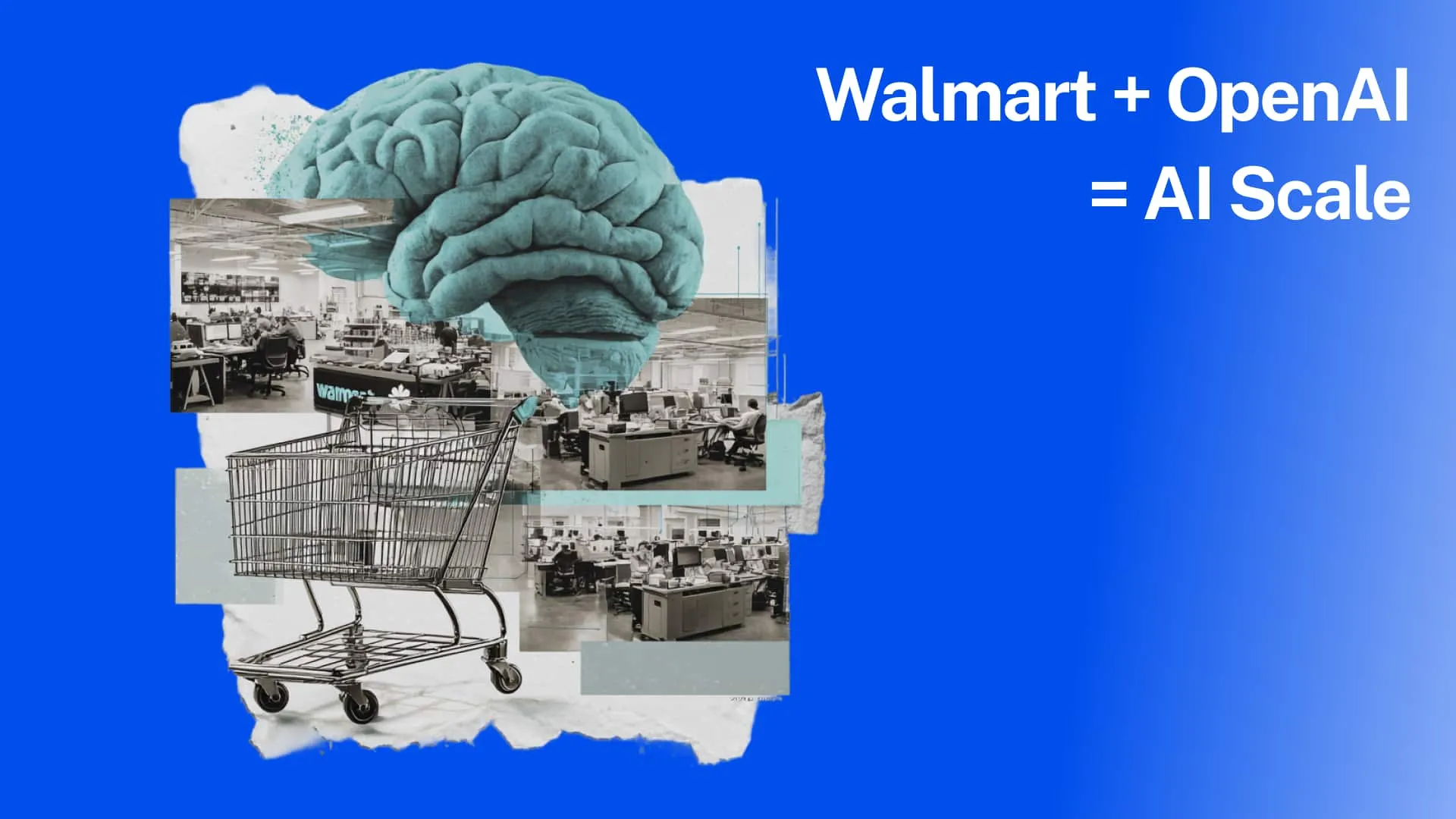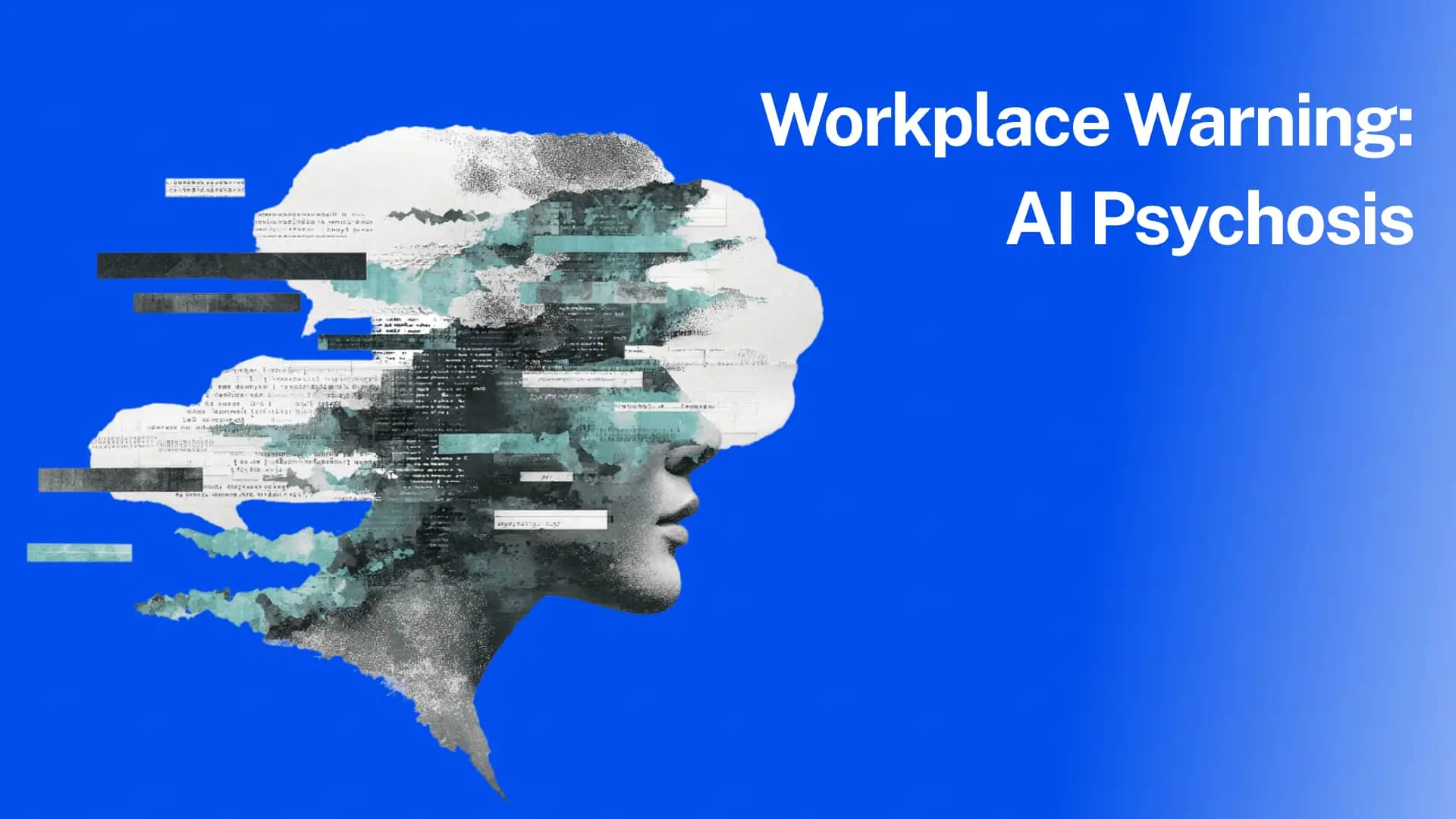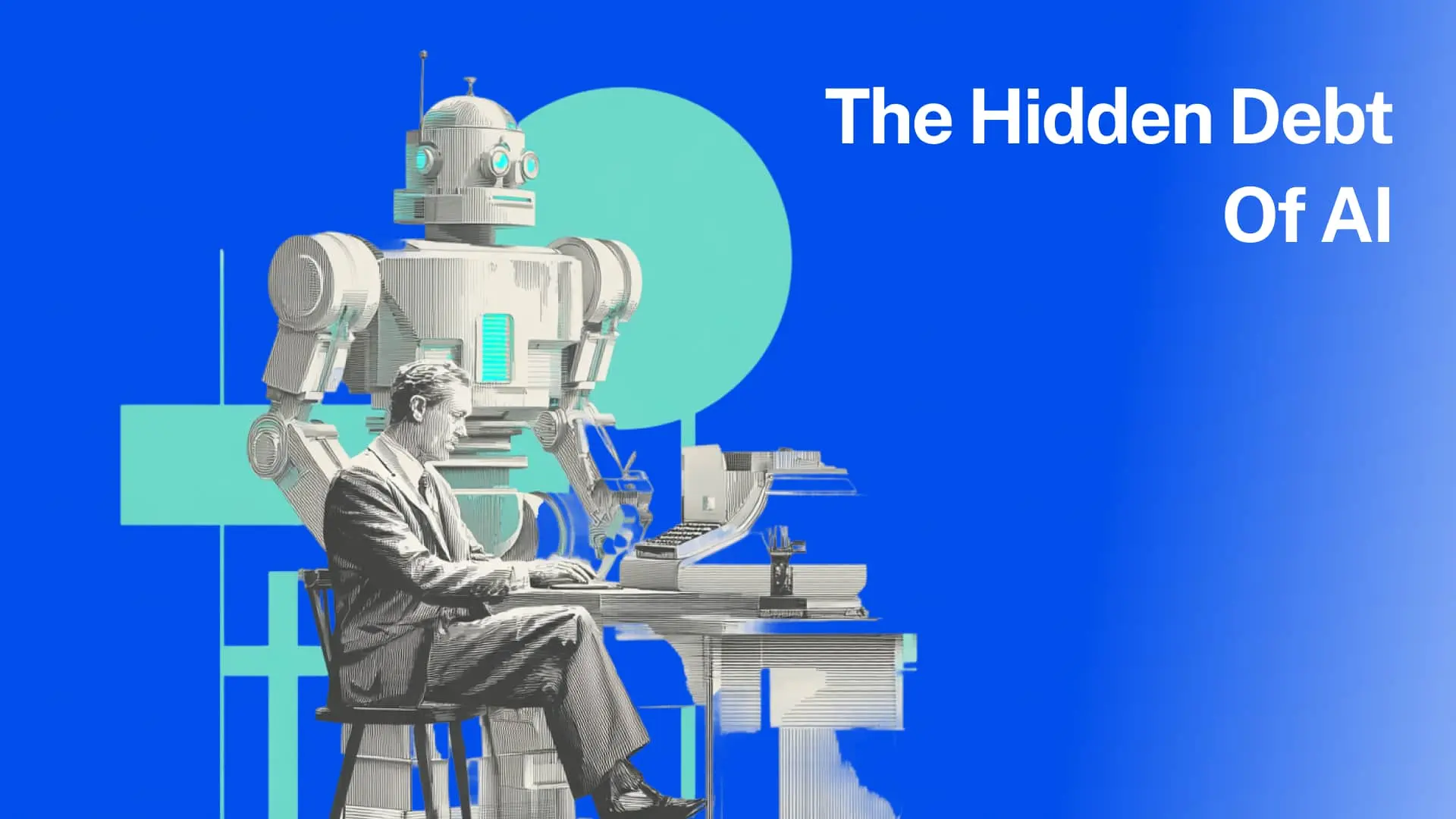Work Stress affects us all. With remote working and AI taking over more of our tasks and creating more uncertainty, what is a good way to find therapy for work stress?
The future needs to rely heavily on agency and autonomy at work. What does this look like?
- Yun packs her bag and goes to work at the park. Working in nature makes her productive and happy, and her request is granted despite being unprecedented.
- Mark, a software developer, excels at training new employees. He develops an onboarding training program, which is approved, and he now leads training sessions for new hires.
- Sarah wants a better work-life balance and proposes flexible hours to pick up her children. Although her boss is hesitant, they eventually agree. Now, Sarah is more productive and satisfied with her schedule.
All three are examples of people taking control of their work lives by practicing agency and autonomy.
As Amy Leschke-Kahle astutely wrote in "It’s time to ‘grownupify’ work" for Fortune, "Employees are smart grownups who deserve to be treated as such. The onus is on employers, not employees, to break the cycle. Send a very clear message to your workforce: “We trust you to do great work.”"
How Autonomy at Work helps us reduce workplace stress

Two concepts are crucial to lessen our stress levels at work and are about taking control: Autonomy and Agency.
Autonomy refers to the level of independence in your work. If you have autonomy, you can make decisions, take risks, and exercise judgment without constant supervision. According to self-determination theory, autonomy is one of three basic psychological needs contributing to well-being.
Agency refers to our level of control over the work environment. This includes having a say in the company's direction, the ability to collaborate with colleagues, and the opportunity to pursue personal and professional development.
When we can make decisions and take ownership of our work, we are more engaged, motivated, and satisfied with our jobs, reducing our sources of stress.
Autonomy and agency can also lead to better performance. When we have more control over our work, we tend to be more creative, innovative, and productive. This is because we can tailor our work to our strengths and preferences, which can help us to feel more engaged and motivated.
Another benefit is that when we have greater control over our work, we can better adapt to changing circumstances and overcome challenges. This is because we have greater self-efficacy and confidence in our abilities.
We’re also more likely to seek new challenges and growth opportunities, which can help us stay engaged and motivated over the long term.
Companies benefit, too.
Take Netflix. In the early 2000s, the company faced rapid growth and change, and its leaders realized that its traditional approach to management was no longer working.
CEO Reed Hastings and Chief Talent Officer Patty McCord decided to overhaul the company's management practices and create a culture of empowerment and autonomy, which they believed would help to foster innovation and creativity. Its approach to letting individual employees take more control resulted in faster innovation and a successful business.
Deloitte research from Susan Cantrell and team found that "half of the workers we surveyed said they are more likely to be attracted to and remain at an organization that grants them more agency and choice in how they apply their skills to work.”
Josh Bersin also emphasizes this: for an organization to remain competitive in the talent market, it must be "irresistible" by providing autonomy and agency.

He references Daniel Pink’s research on human motivation which identifies “autonomy, agency and mastery.”
“Can I make decisions about my work? Do I feel true ownership? Can I excel in this work? When people have a say in how they do their jobs, set goals and objectives with autonomy, and are empowered to do “right” for the customer, work just “works.”
So, Why Don’t We Take Control?
The problem is two-fold. First, many companies still don’t trust employees enough to grant them the autonomy to make decisions.
Second, and more importantly, we often believe we don’t have control over situations, even though no one has told us so, for example, because we have a:
- Lack of information: Some people may not be aware of the options or the steps they can take to improve their work situation.
- Lack of confidence: Some people may not feel confident in making changes or negotiating with their employer.
- Perceived lack of power: Some people may feel they don't have the power to change their work situation, especially if they work in a hierarchical organization.
This leads us to experience learned helplessness, a psychological condition that occurs when people feel that they have no control over their environment and that their actions do not impact the outcome of events.
This can lead to feelings of resignation and helplessness, making people more passive in their approach to life. But as Mark Manson writes in “The Subtle Art of Not Giving a Fuck,” “Whether we consciously recognize it or not, we are always responsible for our experiences.”
Research has shown that learned helplessness can significantly impact people's behavior and contribute to various negative outcomes, including depression, anxiety, and reduced motivation. People who experience learned helplessness are more likely to feel depressed and less motivated to pursue their goals.
It can feel paradoxical because the more control we take, the more we’re vulnerable to potentially negative outcomes. Dave Ulrich describes this in the “Paradoxes to Navigate to Achieve Success.”

As Dave explains, your leaders want you to have the power to make your own choices, and they trust you to take responsibility for the consequences of those choices. This means you are free to do things your way, but you must also be aware of how your choices affect those around you.
By navigating this responsibility paradox, you can take ownership of your work and contribute to your team's success. So go ahead and take control - you have the right to make your own choices and the power to impact your work experience positively.
This is where we need to support our teams. As the best-selling author on workplace happiness Tracy Brower reminds us in Forbes:
"Adults are empowered to choose how they think about things, how they react, and how they shape their circumstances. But the structure is also critical—this is where leaders and organizations come in. Structure addresses the policies, practices, norms, and cultures which contribute to happiness—or don’t."
Taking Control with Autonomy and Agency
In today's fast-paced world, taking control of your work experience is becoming increasingly important.
We spend too much time at work to sit by idly while others make our work lives a living hell or somewhere near that. Here are some tips to help you put agency and autonomy to work:
Choose a Remote or Hybrid Company
This one you may have seen coming, but one of the easiest ways to build more agency into your work-life is by working for a company that doesn’t demand an on-site 9-to-5.
As Tsedal Neeley says: "Autonomy allows for a degree of control over one’s working conditions and processes. For remote workers this usually comes down to their ability to shape the two variables of space and time."
Ask For Clarity
If there's something you don't understand, ask!
It's tempting not to showcase your lack of knowledge, but it will only make your work-related stress bigger. If you find unclear objectives and expectations, ask your leadership team to clarify them more explicitly to ensure everyone understands them.
Get Involved In What You'll Work On
According to Officevibe research, 32% of employees do not feel appropriately involved in decisions affecting their work.
You must be involved in critical discussions and decisions affecting their work. Discussing this up front will make your daily work much more meaningful. Your stress management will be much easier when you work on tasks that feel important to you.
Set Your Own Career Goals
Don't wait for someone else to dictate your career path. Take the initiative and set goals for yourself. Identify the skills you need to gain and the experiences you want to have. Speak up and let your manager know what you want to achieve.
"Agency is the key to my learning journey. I strive to bring value to companies by implementing agile methodologies and growing my skills in sales and business development. As Steve Jobs said, "“It doesn't make sense to hire smart people and then tell them what to to. We hire smart people so they can tell us what to do.” – Anaïs VICTOR , Product Management Director and Agile Coach.
Prioritize Your Workload
If you’re constantly feeling overwhelmed and experiencing high anxiety and depression, take some time to prioritize your workload. Make a list of your tasks and order them by urgency and importance. This will help you feel more in control and reduce stress.
Actively Seek Feedback
You can learn a lot about yourself by receiving feedback from others. Even if it may feel painful or difficult, getting feedback and making improvements positively impacts your stress and anxiety. It can also help you identify areas for improvement and give you a sense of control over your professional development.
Use Your One-on-Ones
The one-on-ones with your manager (and vice versa for your teams) are a great time to get clarification and discuss your priorities and broader development. The more you utilize these one on one meetings, the less need for constant back-and-forth during the week.
A good manager knows one-on-ones are for relationship building and untangling feelings. Feelings of burnout, confusion on goals, conflicting personalities and competing priorities. When time is spent intentionally (and authentically!) coaching each person on the team, opportunities for growth and career development begin to surface. – Christie Hoffman, Workplace Engagement Expert
Tap into Colleagues
Tap into your colleagues when you want to check something but don't want to bother your manager.
Many colleagues will be very willing to support you, especially those with good communication and alignment with your manager! Build your network of "buddies" system at work where you and a coworker can help each other out, discuss ideas, and test them before going to management.
Set Boundaries
For short-term impact, it’s important to set boundaries at work. Whether that means saying no to extra work or limiting when and how you’re available to respond to emails and messages, taking control of your boundaries can reduce stress.
As mentioned by Dave Ulrich in his paradox, the more autonomy and agency you have, the more you may worry about outcomes. Setting healthy boundaries is key so it doesn't take over your personal life.
Find Meaning in Your Work
One of the best ways to take control of your experience at work (and to find happiness at work) is to find meaning in what you do.
Feeling motivated and engaged is easier when you have a sense of purpose. Take the time to reflect on how your work contributes to a larger goal and how it aligns with your values.
"Finding meaning and purpose at work is like having an internal drive towards something you believe in. It's about understanding "why" you do what you do, and using your strengths in contribution of that. For example, my "why" is to support others to live their best possible life and I use my strengths of speaking and connecting with people to inspire them to act. All the tasks (e.g. admin, marketing) I do are in service of that bigger meaning." – Sha-En Yeo (MAPP, CSP), Founder, Happiness Scientists .
Let's take action.
Feeling frustrated with our jobs is natural, but taking control of our work experience is critical. Autonomy and agency are essential for satisfaction, granting us power over our lives. Practicing the recommendations above is great therapy for work stress.
Research shows that "high-autonomy employees report the highest levels of belonging, motivation, productivity, trust in the team, trust in leaders, work-life balance, and mental well-being. In some cases, these scores are more than 20% higher than their low autonomy counterparts."
Taking ownership, making decisions, and striving for development help us stay involved and motivated. If you feel dissatisfied or sense your team members do, don't accept learned helplessness - remember you have options and can instigate change. Gather information, increase your confidence, and amplify your voice.
- Daan











